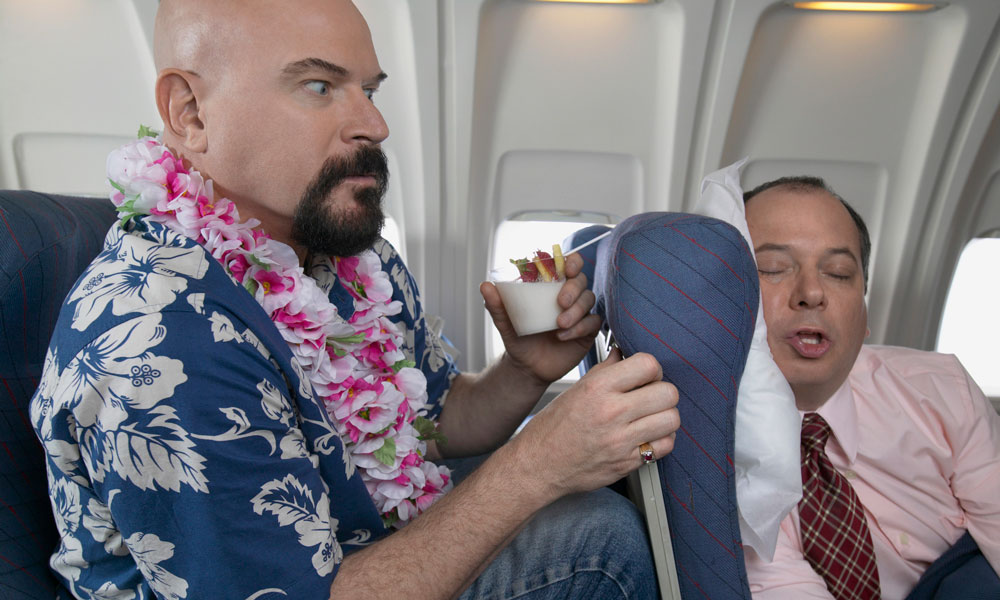
IATA: Collaboration Needed to Curb Unruly Passengers
Last year, the number of "air rage" incidents worldwide surged above 10,000. The International Air Transport Association thinks a more aggressive approach to stopping overconsumption of alcohol at airport bars and restaurants could help solve the problem.
It’s not just fears of exploding Samsung Galaxy Note 7 phones that air travelers have to worry about in the sky.
According to a recent report from the International Air Transport Association, “air rage” incidents, or situations in which unruly passengers disrupt a flight, have been on the rise. Last year, according to IATA, there were 10,854 incidents worldwide—a jump of more than 1,500 over 2014. That puts the odds of having an unruly passenger on your flight at a somewhat low 1 in 1,205 flights, but that’s compared to 1 in 1,282 flights two years ago. (Doing the math, that breaks down to an average of nearly 30 air rage incidents per day worldwide.)
Incidents included verbal abuse, failure to follow instructions from the crew, physical aggression, and damage to the aircraft.
“Unruly and disruptive behavior is simply not acceptable. The antisocial behavior of a tiny minority of customers can have unpleasant consequences for the safety and comfort of all on board,” Alexandre de Juniac, IATA’s director general and CEO, said in a news release.
So what’s behind the trend? A number of factors might be at play, but IATA identified alcohol consumption as a chief culprit, saying airport bars and duty-free shops are selling enough alcohol to encourage binge drinking. The association cited a program by Monarch Airlines at London’s Gatwick airport as showing that a proactive effort to discourage passenger drinking before boarding could cut the number of air rage incidents in half.
De Juniac encouraged more countries to ratify the Montreal Protocol 2014, which includes legal solutions for dealing with unruly passengers. Six nations have ratified the agreement so far. “More are needed in order to have a consistent global approach to this issue,” he said.
He called for “a balanced solution in which all stakeholders can collaborate. The industry’s core principles can help to manage the small percentage of passengers who abuse alcohol. And it must be balanced with efforts by governments taking advantage of all their deterrence mechanisms, including those provided through the Montreal Protocol 14.”
(iStock/Thinkstock)






Comments